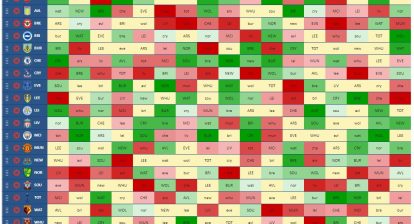Last updated on February 6th, 2025

Champions League fixtures present unique challenges and opportunities for Fantasy Premier League managers. Understanding the interplay between these competitions can significantly enhance your decision-making. As players juggle domestic and European commitments, strategic planning becomes paramount.
The Champions League is not just a prestigious tournament in its own right; it holds substantial sway over Fantasy Premier League (FPL) strategies. As players are often stretched between domestic duties and European clashes, their performance dynamics shift, influencing FPL outcomes. Recognising how these fixtures can impact your FPL decisions is crucial for optimising team selection and captain choices.
Understanding Champions League Odds offers insights into team performance expectations during such congested periods. These odds reflect the likelihood of a team’s success in upcoming fixtures, which can help gauge whether a team might prioritise Champions League success over domestic commitments.
The Champions League Influence on Player Performance
Participating in the Champions League can have a profound effect on player performance in the Premier League. The rigorous schedule of mid-week European matches followed by weekend domestic games may lead to fatigue among top players. This physical toll often manifests as diminished form in league matches, impacting their reliability in Fantasy Premier League.
Furthermore, the increased intensity and frequency of matches elevate injury risks. Players engaged in both tournaments face higher chances of muscular strains or other injuries due to insufficient recovery time. Consequently, managers must stay informed about player fitness and adjust their FPL teams accordingly.
Rotation Risks and Squad Depth
Squad rotation becomes a significant factor as managers strive to maintain player freshness across competitions. Managers of teams involved in the Champions League often rotate their squads more extensively to manage fatigue levels. This rotation can disrupt FPL selections, as key players might find themselves benched or playing limited minutes.
Teams with substantial squad depth are better equipped to handle these rotation risks. Clubs with quality substitutes are likely to rotate more frequently, which could impact consistent point-scoring for FPL managers relying on star players. Therefore, identifying teams with deep rosters is critical when setting your FPL lineup during Champions League weeks.
A strategic approach involves closely monitoring team news and manager press conferences, which provide valuable hints on expected rotations. Staying attuned to these updates enables you to make informed decisions about which players to field each gameweek.
Form and Momentum
Success or failure in the Champions League can heavily influence a player’s domestic form and confidence. Players experiencing positive outcomes in Europe may carry that momentum into league matches, enhancing their performance and fantasy value. Conversely, a string of poor results might negatively affect morale and form.
The psychological impact of European performances extends beyond individual players to entire squads. A team’s morale can be bolstered by good results on the continental stage, leading to improved performances domestically. Conversely, disappointing campaigns could detract from league focus and results.
While historic data reveals trends where some players consistently excel after European matches, others falter under pressure. Remaining aware of these patterns helps anticipate potential dips or spikes in form that could influence your fantasy choices.
Strategic Considerations for FPL Managers
Navigating through the intricacies of overlapping schedules demands strategic foresight from FPL managers. Planning transfers around Champions League fixtures ensures you’re prepared for any potential player absences due to rotations or injuries. Additionally, selecting captains whose teams do not participate in Europe might yield more consistent points.
The importance of being adaptable cannot be overstated; remaining flexible allows you to react swiftly to unforeseen changes like last-minute injuries or lineup alterations. Incorporating flexibility into your strategy helps mitigate risks associated with unpredictable rotation policies employed by managers prioritising European success.
By keeping abreast of news from reliable sources such as press conferences and official club announcements, you gain critical insights necessary for making informed tactical adjustments week-to-week throughout the season.
Summing Up: Evaluating Champions League Odds
Champions League odds provide an additional layer of insight for FPL managers aiming to maximise their strategies during these dual engagements. By analysing these odds alongside other factors like form trends or injury reports, you gain a holistic view of how various variables interact within complex schedules involving multiple competitions.
This understanding aids decision-making processes regarding transfers and captain choices amid congested fixture lists typical during this period each season. It’s imperative always being proactive rather than reactive when facing potential pitfalls associated with squad rotations caused by heavy fixture congestion inherent within modern football’s calendar structure today!

